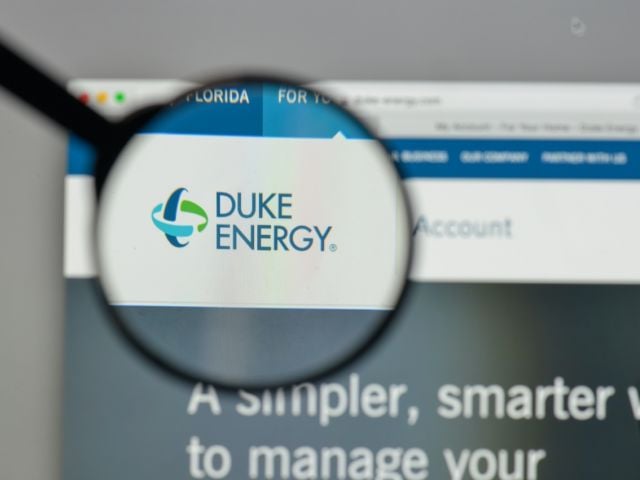SAN FRANCISCO – The world’s largest oil companies raked in roughly $200 billion in global profits in 2022 and will likely be flush with similar returns this year, even as they fight talk of a windfall profits tax and oppose a plan in California to end gas price gouging.
One industry executive recently even had the gall to complain that the filthy rich sector is being “demonized” by California Gov. Gavin Newsom, who wants Big Oil to stop fleecing hardworking Americans at the pump.
Fourth-quarter reports for BP, ExxonMobil, Chevron, Shell and Total Energies, which should all be made public by February, will show a combined profit of $199 billion, reported Refinitiv, a financial markets data firm, according to Reuters.
“Soaring oil and gas prices are making company executives and shareholders even wealthier, while working families are being forced to make difficult pocketbook decisions. Yet the same Big Oil crowd whines about everyday people being upset that these companies are fleecing them,” said Environmental Working Group President and co-founder Ken Cook.
“Big oil firms are gouging consumers, many struggling to pay the rising cost of commuting to work and school. And the industry is fighting efforts to hold them accountable. It’s pure, unadulterated greed, and no industry spin can change that,” said Cook.
The outrageous profits the big oil companies made last year didn’t quell their anger toward paying windfall profit taxes in some countries. Exxon is suing the European Union over its recent windfall profit tax. And both Shell and Total Energies say each company will pay more than $2 billion in windfall profit taxes in the EU and Great Britain.
There is no such tax on these and other oil giants in the U.S., but last October President Joe Biden condemned the oil industry for reaping record profits but not lowering gas prices that have battered U.S. consumers’ pocketbooks. At that time, EWG urged the president and Congress to support legislation that would impose a windfall profit tax.
“President Biden and Congress should move swiftly to pass legislation that will return some of these ill-gotten gains directly back to consumers,” said EWG’s Cook.
In a recent interview with Bloomberg, Chevron’s CEO, Mike Wirth, sought to downplay the industry’s record profits, calling his own company’s almost $40 billion haul in 2022 a “modest return.”
While these oil companies are enjoying all-time high windfall profits, paychecks for working- and middle-class people are taking an enormous hit, forcing families to make difficult decisions between the need to commute and the rising costs of living.
The situation is particularly dire in California, where just five oil refiners produce nearly 100 percent of the gas sold in the state. They get to set the price per gallon at every gas station, resulting in California having astronomical gas prices far higher than the rest of the country.
Late last year, the typical price for a gallon of gas in California was nearly twice the national average – as high as $7 in some areas of the state. That prompted Newsom and members of the state Legislature to push a proposal that would levy penalties on the state’s oil refiners, which have reaped record profits on the backs of hard-working people, and return the money to Californians through refunds.
In response to Newsom’s plan, Western States Petroleum Association President Catherine Reheis-Boyd said, “demonizing the oil industry must stop.”
In his 2023 budget proposal, released last week, Newsom highlighted details of state legislation tackling Big Oil’s runaway profits, which his administration is helping to advance. From Newsom’s 2023 budget blueprint:
Gas Price Gouging Penalty: In a special session in December, the Administration, working with the Legislature, introduced a policy proposal: a price gouging penalty on excess oil refiner profits as well as transparency and oversight measures to help prevent future price gouging in California. While this proposal will be developed outside of the budget process, it is an important tool to prevent gas price hikes in the state by making it unlawful for refineries to collect excessive profits. The amount of the maximum margin and the amount of the penalty will be determined through the legislative process. Although the goal of the price gouging penalty is to discourage price hikes from hitting Californians in the first place, any funds collected by the penalty will go to a Price Gouging Penalty Fund and then go back to Californians. (Page 112.)
“The oil companies in California have been allowed to run roughshod over the state’s consumers for decades with little to no accountability from our elected leaders,” said Cook, who resides in the Bay Area. “We hope the governor and members of the Legislature will keep up the pressure on the state’s powerful fossil fuel industry and punish them for what is nothing short of rank fleecing of hard-working California families.”
###
The Environmental Working Group (EWG) is a nonprofit, non-partisan organization that empowers people to live healthier lives in a healthier environment. Through research, advocacy and unique education tools, EWG drives consumer choice and civic action.


